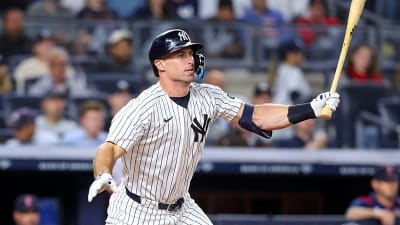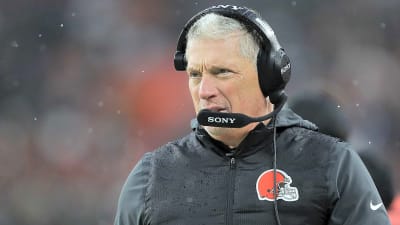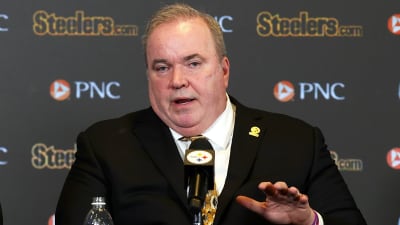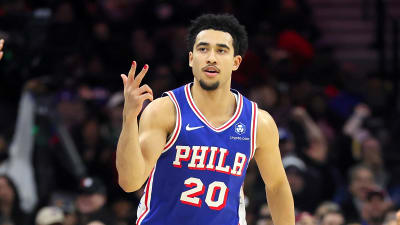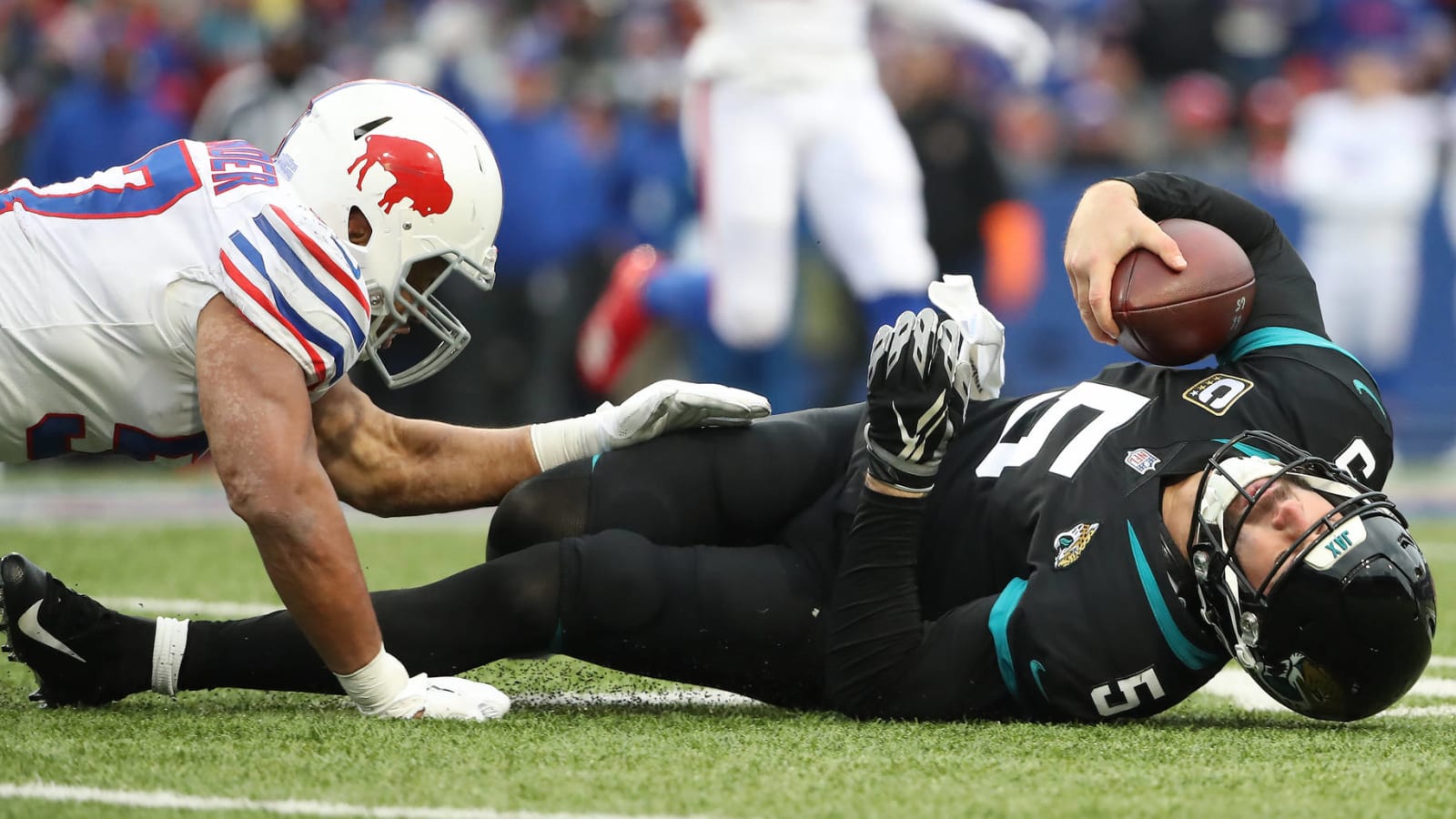
Eight NFL teams that need to start over
With three weeks remaining in the NFL's 99th season, a handful of teams are either preparing for next year or fighting a losing battle for playoff qualification. Here are the franchises that need to consider making big-picture changes in the coming months.
Arizona Cardinals
When comparing where an injury-besieged Cardinals team stood a year ago under Bruce Arians and where Steve Wilks' team resides, it is arguable the current Arizona coach should be one-and-done. Though, despite this franchise’s persistent struggles in Arizona or St. Louis, it has not made a coach a one-and-done since relocating from Chicago in 1960.
It is nearly impossible to evaluate Josh Rosen, who is playing behind second-string offensive linemen and attempting to develop in an undesirable system. Either the Cardinals lure a hot offensive coordinator prospect to the desert or they commit to pairing Rosen with an offensive-minded head coach. That's because this season’s work — last in total yards (242.4, 50 fewer per game than the next-worst offense), last in points (13.7) and the fifth-worst offensive DVOA figure through 13 games since 1986 — in an offensively friendly season across the league is unacceptable.
Cincinnati Bengals
Cincinnati has gone from being an annual occupant of the NFL’s upper middle class to one firmly in the lower end of this glut. The Bengals are stuck.
Injuries did play a key role in sinking the latest Bengals iteration, but their October work with a healthy A.J. Green and Andy Dalton showed the 4-1 start was a mirage. With nearly every other franchise, Marvin Lewis (wrapping up Year 16) would not have survived long enough to lose five first-round playoff games in five years. Dalton is a middling quarterback who would need a top-level defense to pilot a championship contender.
As evidenced by Lewis’ status, Bengals owner Mike Brown is not big on splashy moves or sweeping changes. But the Browns are about to surpass his team in the AFC hierarchy. No guaranteed money remains on Dalton’s through-2020 contract. While his $16 million-per-year deal is a bargain in the modern quarterback market, Cincinnati at least needs to invest in a successor/competitor.
Lewis did revive the Bengals from their abysmal stretch, but he has exhausted his grace period. The franchise desperately needs a plan; its status quo is among the NFL's most depressing.
Denver Broncos
After bad drafts from 2015-17 damaged the Broncos’ depth, Denver’s 2018 rookies offer hope. Bradley Chubb and Phillip Lindsay are Pro Bowl-caliber players already. Courtland Sutton and Royce Freeman became quick contributors. This class blended with some of the franchise’s Super Bowl 50 holdovers to steer the team into fringe playoff contention. But the Broncos should be better than they are.
Vance Joseph and his staff cost Denver at least two games. The team’s decision to abandon a bludgeoning ground attack allowed the Chiefs to steal a Week 4 win, and the head coach’s clock-management issues enabled the Texans to escape Denver with a bizarre victory. John Elway hiring Joseph — whose one season as a coordinator (with the 2016 Dolphins) produced a No. 29-ranked defense — over Kyle Shanahan has not worked out. Although injuries may have sunk the Broncos anyway, Joseph has impeded Elway’s improved roster.
Case Keenum has stopped his rampant turnover habit and aided the Broncos offense after its awful 2017, but he is a stopgap measure. Even if Keenum at $18M per year may be a better buy than Kirk Cousins at $28M annually, Denver is a low-ceiling team. Unfortunately, the 2019 draft might not be the best place to land a quarterback — especially if the Broncos finish near .500.
Unless Elway can bring in a coach-quarterback tandem with better potential, the eighth-year general manager’s executive legacy will be largely tied to Peyton Manning (and the Joseph and Paxton Lynch decisions that diminished a Super Bowl core’s relevancy).
Detroit Lions
The NFC’s Bengals. Both teams endured dreadful decades: the Bengals in the 1990s, the Lions in the aughts. Both achieved moderate 2010s success — eight combined playoff berths, zero January wins — and each is stuck with a quarterback problem.
Matthew Stafford is more talented than Andy Dalton, but his spot in the quarterback salary hierarchy is out of place. Detroit authorizing a $27M-per-year extension for Stafford made sense. Quarterbacks like this are not readily available. This is one of the tougher cases in the league, but how many years can the now-30-year-old passer (25th in 2018 QBR) fail to justify his draft status?
Detroit does not boast a quality defense, and its run game was woeful for years until Kerryon Johnson showed early promise. The Lions will probably have to continue to deploy Stafford in hopes he can make a midcareer leap, perhaps with a Matt Patricia-selected replacement for grandfathered-in offensive coordinator Jim Bob Cooter, because Stafford's through-2022 contract is an albatross.
Unless the talent around Detroit’s quarterback vastly improves — because unlike most of the other QBs in his tax bracket, Stafford has proved incapable of elevating a team — the Lions will not be a serious contender.
Jacksonville Jaguars
Two disastrous decisions impeded this franchise's productive choices. Allowing Blake Bortles to stay the course after a terrible 2016 and drafting Leonard Fournette over Patrick Mahomes and Deshaun Watson set up the Jaguars for this fall. Extending Bortles (and bringing in no viable competition) completed it. Jacksonville could see a full-on housecleaning.
Doug Marrone’s two shots at NFL coaching — encompassing barely four seasons — came with E.J. Manuel, Kyle Orton and Bortles at quarterback. That is inadequate source material on which to evaluate. Marrone may well be safe; Jacksonville’s surge to the 2017 AFC Championship Game may buy him another year. But it would not be incredibly unreasonable to start over — with the only goal being the implementation of a cohesive offensive vision to complement a ready-now defensive core.
Bortles will not get another chance. However, the three-year, $54M extension the Jags gave their quarterback should cost general manager Dave Caldwell his job. Bortles’ contract also pushed a Jags team into salary cap hell. It will cost the Jags $16.5M in dead money to release Bortles, and though they can spread that out over two years via post-June 1 cut, cap issues will still force them to slice into their high-priced defense.
But 2019 is a worse year to need a quarterback than 2018. The Jags could be staring at Teddy Bridgewater or Tyrod Taylor — two players they passed on this year — or possibly Joe Flacco. The 2019 rookie crop may be as barren as 2013’s was.
New York Jets
Todd Bowles is about to be shown the door. He will soon likely have overseen three straight 10-loss seasons, rendering the extension he signed late last year meaningless (at least as far as Jets employment goes). But what has general manager Mike Maccagnan done to avoid the same fate? Although the fourth-year GM was named Executive of the Year in 2015, he has made egregious decisions that placed the franchise on its current track.
Maccagnan’s big contracts: Darrelle Revis, Muhammad Wilkerson, Trumaine Johnson. The first two were amazing flops, and the third is en route to that category. Other than Jamal Adams (and perhaps Sam Darnold), Maccagnan’s drafts are littered with missteps. Darron Lee, Christian Hackenberg and Devin Smith qualify, and Leonard Williams, though solid, has not justified his draft slot (No. 6 overall in 2015) yet. For an executive who built his resume on scouting, this is a shaky start.
Darnold also is desperate for playmakers. The 2018 Jets’ skill-position group is devoid of a cornerstone talent, and if Maccagnan is given another year, he may spend wildly to bring some chain-movers to the Big Apple. This is the best bet for Le’Veon Bell’s buyer, a decision that would have strong odds of joining Maccagnan's aforementioned contract blunders. The Jets need long-term answers nearly everywhere on offense. (And their defense could use help, too.)
Tampa Bay Buccaneers
Since the Jon Gruden-Jeff Garcia pairing led the 2007 Buccaneers to the playoffs, this franchise has cycled through head coaches and quarterbacks. None of those combinations snapped what is about to become an 11-year playoff drought. That is now the second-longest NFL postseason hiatus — behind only Cleveland — and the Bucs’ regular-season-only routine, given the Bears’ pending playoff berth, is about to lap the rest of the NFC.
General manager Jason Licht looks to be the safest of the Bucs’ power trio, but Dirk Koetter and Jameis Winston could be elsewhere next year.
Off-field headaches aside, Winston may be a better solution than the 2019 rookie crop. However, the interception maven (56 picks, trailing only Bortles’ 57, and Winston’s INTs have come on 147 fewer attempts) will see his cap number spike from $7.9M to $20.9M. The Bucs can wriggle free of several contracts (including Winston’s guaranteed-for-injury-only fifth-year option) with no dead money, but having a cheaper solution than Winston would help. That would mean acknowledging a second failed first-round QB pick in less than 10 years, with Josh Freeman cratering sooner than Winston did.
Koetter is 19-26 since taking over for Lovie Smith. He is out of time. Ownership gave him a third season, which is more than Greg Schiano or Smith received. While Tampa Bay ranks second in total yards (430.1), its defense is again horrendous (27th in yards, 30th in points allowed). Licht built a nice skill-position core, and most of it — save for DeSean Jackson — probably returns in 2019. The fifth-year GM has, nevertheless, not proved he deserves to hire a third coach.
Washington Redskins
Months after restarting at quarterback, Washington may be forced into another changeover. Alex Smith may never play again, and with the injury-wrecked Redskins barreling toward a 12th sub-10-win season in 13 years, Daniel Snyder may have no choice but to can a decent head coach. And if the oft-maligned owner wants to save face, he will oust president Bruce Allen too.
While the Redskins may be relieved they did not authorize the $84M fully guaranteed Kirk Cousins contract, they are in bad shape at sports’ premier position. Unless the Redskins want to use a mid-first-round pick on either the second- or third-best quarterback prospect in a scrutinized class, they may have to overpay for a free agent — perhaps Bridgewater — or deal draft picks for a middling-at-best passer (perhaps Flacco or Ryan Tannehill).
Aside from Joe Gibbs 2.0, Jay Gruden has been Washington’s best coach this century. His teams have suffered significant injury setbacks the past two years. He has, however, been given five seasons, and only the 9-7 2015 slate saw Washington voyage to the playoffs. Botching a win-and-in scenario a year later further weakens Gruden’s case for a sixth season.
Coupled with the construction of a string of unremarkable teams since taking the Redskins’ reins in 2010, Allen green-lighting the Reuben Foster claim is a fireable offense. His family’s legacy with this franchise should no longer matter. The losing and bad PR outweigh those ties.
More must-reads:
- Odell Beckham Jr. still believes Giants will make playoffs
- Jaguars’ Malik Jackson expects to be cut
- The 'NFL active TD-pass leaders' quiz
Breaking News
Trending News
Customize Your Newsletter
 +
+
Get the latest news and rumors, customized to your favorite sports and teams. Emailed daily. Always free!
